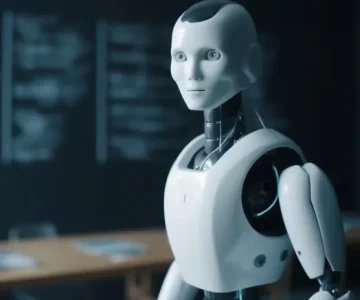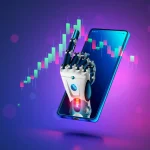Artificial intelligence has rapidly become one of the most influential forces shaping modern classrooms. In just a few short years, it has evolved from a futuristic concept into a practical tool that is transforming how teachers teach and students learn. From tailoring lessons to individual needs to offering instant, personalised feedback, AI is redefining the learning experience. But as this technology becomes more integrated into education, it’s essential for teachers to be ready for the opportunities—and challenges—it brings.
The Promise of AI in Education
AI is no longer a niche innovation. It’s expected to continue expanding at an impressive pace, driven by the rising demand for customised learning, adaptive testing, and smart tutoring systems. Its potential extends far beyond grading papers or generating quizzes—it’s capable of reshaping curriculum design, monitoring student progress in real time, and providing insights that help educators close learning gaps quickly.
With AI-powered tools, teachers can pinpoint exactly where a student is struggling, deliver targeted support, and adapt lesson plans to suit different learning speeds. Automated assessments can adjust their difficulty based on each learner’s knowledge level, while intelligent tutoring systems can guide students step-by-step, allowing them to master concepts at their own pace.
How AI is Helping Teachers Right Now
Even in its current form, AI offers substantial benefits for educators. Some of its most impactful uses include:
- Customised learning plans – Analysing student performance data to offer resources that address specific weaknesses.
- Dynamic assessments – Generating quizzes and assignments that evolve alongside a student’s progress.
- Time-saving automation – Handling grading and administrative work, freeing teachers to focus on instruction.
- Instant feedback – Providing learners with immediate insights to improve their understanding.
- Enhanced collaboration – Enabling students to work together seamlessly, even when learning remotely.
Preparing for an AI-Driven Classroom
For teachers, adapting to AI in education isn’t just about learning how to use new tools—it’s about embracing a new mindset. To stay ahead, educators can:
- Stay informed – Keep up with AI advancements and explore how they can be applied in education.
- Experiment with new tech – Try out emerging tools to see what works best for your students.
- Develop data literacy – Learn how to interpret student performance data to guide instruction.
- Encourage growth mindsets – Promote resilience and adaptability in students, making them more open to learning in an AI-supported environment.
- Share and collaborate – Exchange ideas and strategies with fellow educators to make the most of AI’s potential.
What Lies Ahead for AI in Learning
The next wave of AI innovation will likely focus on even more personalised and interactive experiences. We can expect advanced language processing that understands and responds naturally to student queries, AI-powered virtual tutors offering one-on-one guidance, and frameworks that help schools integrate AI into their teaching strategies. Generative AI—capable of creating new educational content—will likely play a key role in keeping lessons engaging and relevant.
While these tools will be powerful, they are not designed to replace teachers. Instead, they’ll work alongside educators, helping them create richer, more adaptive learning environments. The role of the teacher will remain irreplaceable in fostering creativity, critical thinking, and emotional growth—skills that machines cannot replicate.
Final Thoughts
AI is set to play an increasingly central role in education, offering opportunities to make learning more tailored, efficient, and engaging. Teachers who embrace these tools, refine their digital skills, and work collaboratively will be best positioned to guide students in this evolving landscape.
At its best, AI will handle the repetitive tasks, leaving educators with more time to inspire curiosity, encourage problem-solving, and nurture the human connections that form the heart of learning. The future of education may be powered by AI, but it will always be led by teachers.





